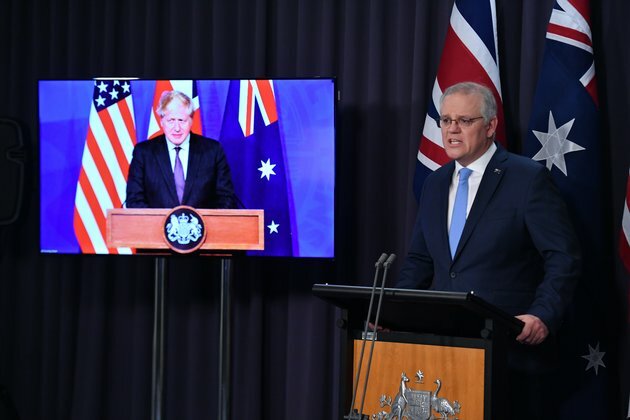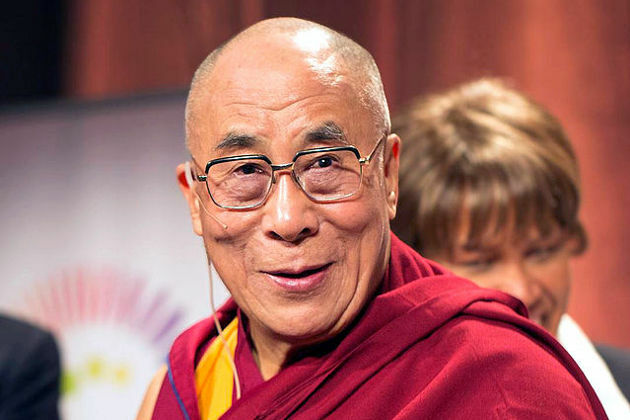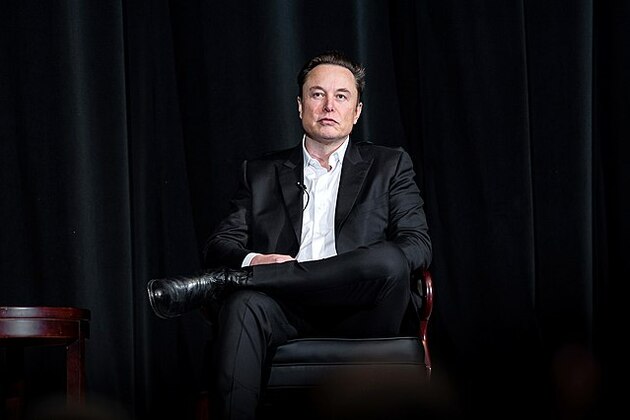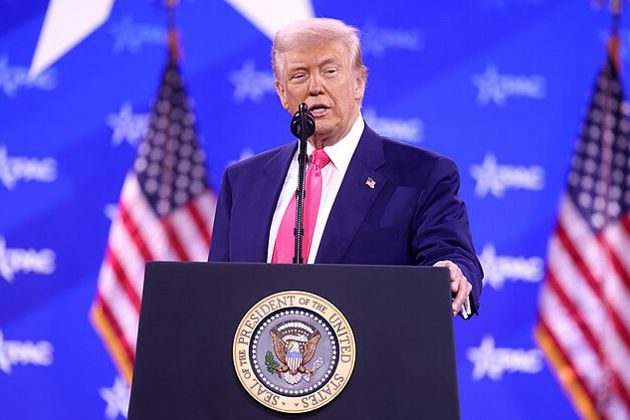AUKUS: is an arms race with China the price of 'Global Britain'?
The Conversation
17 Sep 2021, 00:10 GMT+10

A new military alliance between the US, Australia and the UK will, for the first time, provide Australia with nuclear-powered submarines.
While not officially aimed at another country, the "AUKUS" deal aims to deter China's growing influence in the South Pacific. While many policymakers believe deterrence is the only way to protect the west's interests, this strategy carries significant risks to the UK and its allies.
AUKUS is a direct response to China's recent efforts to modernise and expand its nuclear capabilities. Western democracies are also concerned about China's growing involvement in the contested territories on the South China Sea.
The alliance reflects the view, commonly held by foreign policymakers, that China's actions are a direct challenge to American and British influence in the region and must be actively resisted. But this view has been challenged by international relations scholars and foreign policy analysts. They believe that the west should engage China in diplomacy rather than resist it.
Some commentators and policymakers believe that two countries with nuclear weapons would never attack each other for fear of mutual annihilation. A key - and dangerous - assumption of this belief is that people are rational agents.
This assumption ignores that people often make decisions based on emotional responses, rather than rational calculations. The Cuban Missile Crisis of 1962 - and how close the US and Russia were to launching nuclear strikes against each other - is an example of this. The decision to deploy nuclear weapons was a result of a series of misunderstandings and perceptions, rather than an actual threat posed by either side. A Russian officer's refusal to follow orders is the only reason the cold war did not end up in a nuclear disaster.
While a defensive response to China's nuclear expansion is understandable, it risks creating the so-called "security dilemma". This is a situation where one party, worried about its security, improves its military capabilities. But instead of solving the security issues, the actions escalate the conflict with other parties, producing an outcome which all were trying to avoid.
While AUKUS is a clear attempt to deter China from further expansion, it is likely to have the opposite effect. In response to perceived threat from the western allies, China is more likely to make further efforts to improve its military capability in response. This could lead to a situation very similar to the US-Russian arms race during the cold war.
When Chinese and western policymakers talk past each other rather than engage in a constructive dialogue, tensions are likely to rise. During former US president Donald Trump's administration, instead of engaging with China on its questionable economic practices, the US levied tariffs on Chinese imports, leading to a US-China trade war that continues to this day.
Britain's involvement
If the strategy of nuclear deterrence bears so many risks, why is the UK involved in AUKUS? After all, the US has the ability to provide Australia with all the technology and logistic support in needs to develop nuclear-powered submarines. Yet, according to recent news reports, the UK took the lead in making this partnership a reality, despite the fact that it will contribute much less than the US.
Post-Brexit Britain is keen to reestablish itself as a global player. It is also looking to improve its relationship with the US which has been strained by the hasty withdrawal of US troops from Afghanistan last month.
AUKUS is an opportunity for the UK government to convince the world, and its electorate, that Britain does not need the EU, and that "Global Britain" can be a key player on the international stage.
What's the alternative?
It is clear that the relationship between China and the west is strained by mutual suspicion and hostile exchanges. While China fears that the west poses a threat to its domestic political regime, western nations worry that an expansionist China will become more aggressive in the coming years.
The lack of sustained diplomatic engagement with China means that policymakers are likely to continue misinterpreting each other's actions.
A much better solution would be to engage China on its current nuclear armament policy. The Arms Control Association, a US nonpartisan organisation promoting effective arms control, suggests that western nuclear powers could use their experience of post-cold war diplomacy to develop a system where states report on their nuclear weapons holdings to each other.
More ambitiously, the UK and its allies should engage China on nuclear disarmament - not provide it with an excuse to continue its nuclear expansion.
Author: Barbara Yoxon - Lecturer in International Politics, Lancaster University 
 Share
Share
 Tweet
Tweet
 Share
Share
 Flip
Flip
 Email
Email
Watch latest videos
Subscribe and Follow
Get a daily dose of Taiwan Sun news through our daily email, its complimentary and keeps you fully up to date with world and business news as well.
News RELEASES
Publish news of your business, community or sports group, personnel appointments, major event and more by submitting a news release to Taiwan Sun.
More InformationBusiness
SectionFedEx, UPS step up as Canada Post loses market share in strikes
OTTAWA, Canada: With Canada Post struggling to maintain operations amid labour unrest, rivals like FedEx and UPS are stepping in to...
U.S. stocks steady Tuesday despite tariffs turmoil
NEW YORK, New York - U.S. and global markets showed a mixed performance in Tuesday's trading session, with some indices edging higher...
Beijing blamed for covert disinformation on French fighter jet Rafale
PARIS, France: French military and intelligence officials have accused China of orchestrating a covert campaign to damage the reputation...
Birkenstock steps up legal battle over fakes in India
NEW DELHI, India: Birkenstock is stepping up its efforts to protect its iconic sandals in India, as local legal representatives conducted...
Beijing hits back at EU with medical device import curbs
HONG KONG: China has fired back at the European Union in an escalating trade dispute by imposing new restrictions on medical device...
Wall Street reels after Trump invokes new tariffs
NEW YORK, New York - Monday's trading session saw mixed performances across U.S. and global markets, with several major indices posting...
International
SectionThousands gather in Himalayas as Dalai Lama celebrates 90th birthday
DHARAMSHALA, India: The Dalai Lama turned 90 on July 6, celebrated by thousands of followers in the Himalayan town of Dharamshala,...
Fans perform WWII-era Fascist salute at Marko Perković’s mega concert
ZAGREB, Croatia: A massive concert by popular Croatian singer Marko Perković, known by his stage name Thompson, has drawn widespread...
U.S. Treasury Secretary says Musk should steer clear of politics
WASHINGTON, D.C.: Elon Musk's entry into the political arena is drawing pushback from top U.S. officials and investors, as his decision...
TikTok building U.S.-only app amid pressure to finalise sale
CULVER CITY, California: TikTok is preparing to roll out a separate version of its app for U.S. users, as efforts to secure a sale...
Trump defends use of 'Shylock,' citing ignorance of slur
WASHINGTON, D.C.: President Donald Trump claimed he was unaware that the term shylock is regarded as antisemitic when he used it in...
Summer travel in chaos as French air traffic controllers walk off job
PARIS, France: A strike by French air traffic controllers demanding improved working conditions caused significant disruptions during...













